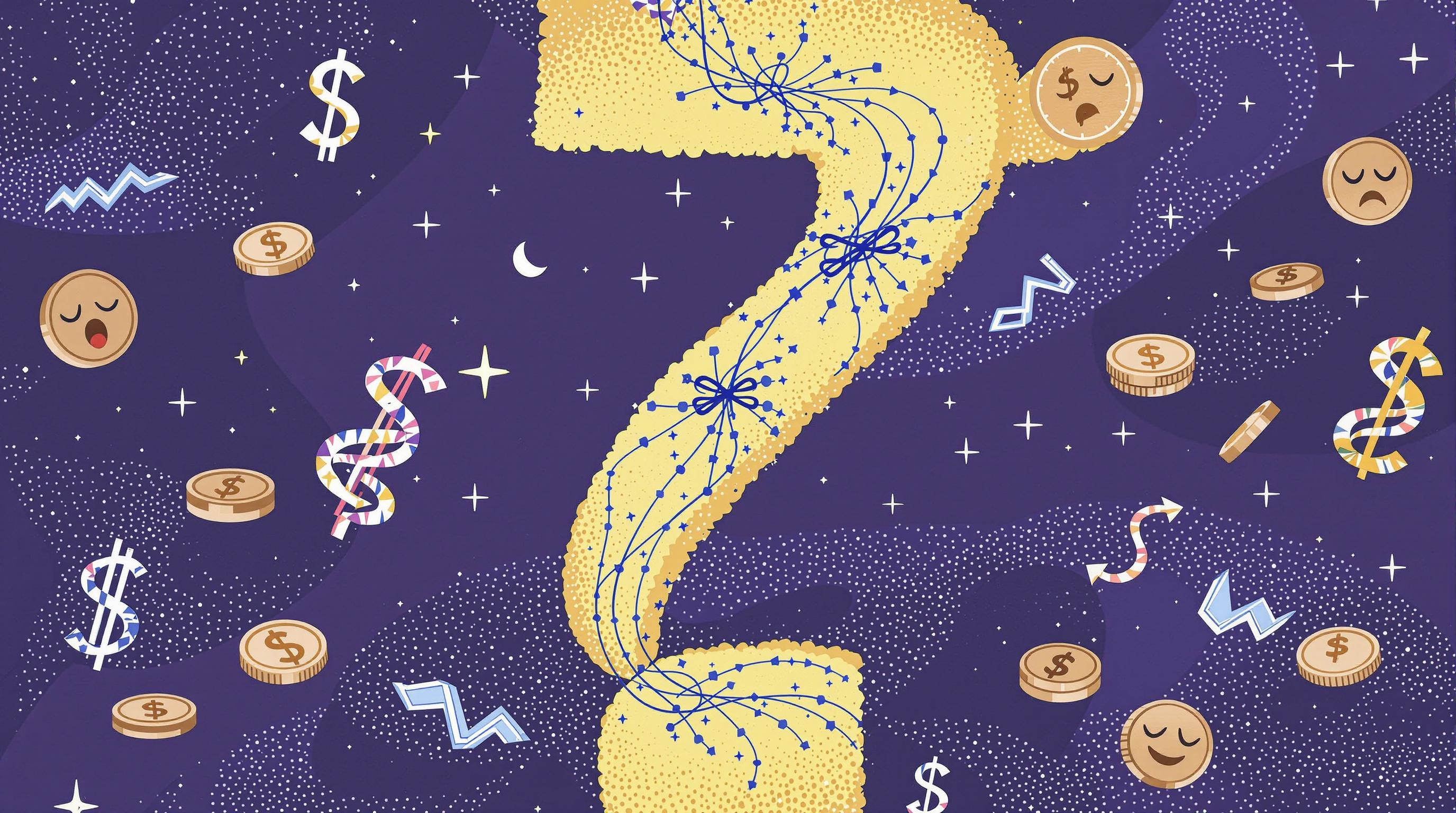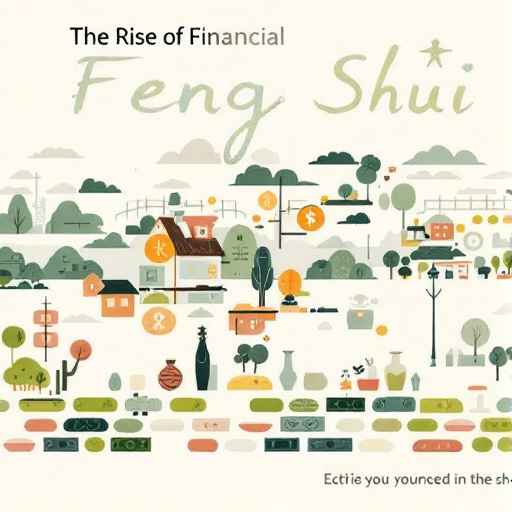Featured Articles
- Cryptocurrency and Climate Change: The Unseen Impact of Your Investments on the Planet's Future
- Cryptocurrency Gifting: The New Age of Financial Advice or Just a Tax Time Bomb?
- Cryptocurrency Gifting: The New Trend for Wealth Transfer in Millennial Families
- Cryptocurrency Therapy: How Mental Health Influences Financial Decision-Making in the Digital Age
- How Sleep Patterns Secretly Shape Your Spending Habits and Financial Decisions in Unexpected Ways
How Sleep Patterns Secretly Shape Your Spending Habits and Financial Decisions in Unexpected Ways
How Sleep Patterns Secretly Shape Your Spending Habits and Financial Decisions in Unexpected Ways
Sleep isn’t just about rest—it stealthily directs how you spend money and make financial choices, often without you realizing it. This article explores the surprising links between your sleep patterns and your wallet, revealing insights backed by science, stories, and a dash of humor.
Odd Hours, Odd Purchases: The Midnight Spending Bug
Imagine this: It’s 2 AM, you’re scrolling through your phone, and suddenly that “Buy Now” button seems irresistible. Experts have observed a peculiar phenomenon called “midnight impulsivity.” When deprived of sleep, the brain's impulse control takes a hit, leading to excessive online shopping or risky financial decisions during those nocturnal hours (Killgore, 2010).
Studies show that sleep deprivation diminishes activity in the prefrontal cortex—the brain’s “decision-making HQ.” So when you’re up late and tired, the part of your brain responsible for restraint and logic is running on empty.
“Sleep-deprived shoppers can increase their spending by up to 50% compared to when well-rested.”
That’s no typo. A 2016 study from the University of Minnesota found that people who averaged less than six hours of sleep were significantly more prone to unplanned expenditures, largely due to impaired judgment and increased cravings for immediate rewards.
You Snooze, You Lose (Money)
Over 70% of adults report not getting the recommended 7-8 hours of sleep on weeknights. This chronic shortage not only affects your mood and health but also quietly sabotages your financial wellbeing.
Take Jane, a 38-year-old marketing professional. After a particularly stressful month averaging only 5 hours of sleep, she found herself binge-buying gadgets and dining out way more than usual, later describing it as a “sleep-debt hangover” with real dollar signs attached.
Humor Break: The Sleepy Wallet’s Lament
Ever heard a wallet whimper? Neither have I, but if it could, it’d say: “Hey, can we maybe not splurge on caffeine AND fancy shoes after a bad night’s sleep?” Sleep deprivation tends to cloud judgment so thoroughly that even the most budget-conscious will suddenly become a champion of splurging.
Here’s a laugh-worthy thought: You’re more likely to buy that ridiculous novelty item at 3 AM than during a coffee-fueled daytime shopping spree.
Biological Clocks and Buying Choices
Early birds and night owls don’t just differ in wake-up times—they also differ in spending behavior. Research by the Journal of Consumer Psychology shows that “night owls” with irregular sleep schedules have higher tendencies toward impulsivity and emotional spending.
Moreover, the disruption of circadian rhythms affects hormone levels related to reward and pleasure, such as dopamine, making late-night purchases feel more gratifying but less rational.
Case Study: The Late-Night Credit Card Swipe
David, a 45-year-old software engineer, discovered his credit card statement often ballooned around weekends when he stayed awake until 1 or 2 AM gaming. His adrenaline-fueled late nights were followed by mindless online orders for gadgets and accessories he didn't truly need.
After tracking his sleep and spending patterns for three months, David learned that on nights he hit the hay by 10 PM, his impulse buys plummeted by 40%.
Intertwined With Stress: Sleep, Anxiety, and Financial Choices
Financial anxiety can cause sleepless nights, but lack of sleep can equally fuel poor financial decisions, creating a vicious loop. Sleep deprivation impairs emotional regulation, pushing people toward “retail therapy” or impulsive investments as a misguided attempt to relieve stress.
One study showed that participants with restricted sleep on an investment task tended to take riskier financial gambles, chasing after big wins while ignoring potential losses (Venkatraman et al., 2007).
Sleep as a Budgeting Ally
Embracing consistent, quality sleep isn’t just good for your health; it’s a secret weapon for financial discipline. Habitual well-rested individuals display better long-term planning skills, patience, and resistance to impulsivity—all crucial for budgeting and responsible credit use.
Practical Tips to Align Sleep and Spending
- Set a “digital sunset”: Power down screens an hour before bed to reduce blue light exposure and limit late-night temptation via shopping ads.
- Maintain a sleep schedule: Going to bed and waking up at the same time helps regulate moods and sharpens decision-making.
- Budget with a clear head: Make financial plans only when you’re well-rested, avoiding crucial appointments or purchases during fatigue.
- Mindful mindfulness: Practice stress-reducing routines like meditation before bedtime to cut down anxiety-induced poor money habits.
The Role of Sleep Quality Over Quantity
It’s not just how many hours you sleep but how well you sleep that affects financial decisions. Fragmented or restless sleep can produce the same cognitive impairments as outright sleep deprivation, creating a foggy brain state ripe for imprudent spending.
Age Matters: Young vs. Old Sleep-Spending Dynamics
Teenagers and young adults often have irregular and insufficient sleep patterns, paired with limited financial experience, making them particularly vulnerable to sleep-induced poor spending choices. Meanwhile, older adults might face sleep disturbances due to health issues, impacting their ability to manage finances prudently.
For example, a National Sleep Foundation study highlighted that 43% of adults aged 18-29 reported feeling tired during the day, often leading to hasty buys or subscription sign-ups online without full consideration.
Concluding Thoughts: Give Your Sleep the Budget It Deserves
Our financial health is deeply intertwined with our sleep health. By appreciating how your sleep patterns covertly influence spending and decision-making, you can take steps to nurture both, fostering better financial outcomes and overall wellbeing.
Remember, a well-rested mind is the best financial advisor you have—so before your next shopping spree, ask yourself, “How much sleep did I get last night?” The answer might just save you some dollars.
References:
Killgore, W. D. S. (2010). Effects of sleep deprivation on cognition. Progress in Brain Research, 185, 105-129.
Venkatraman, V., Chuah, Y. M. L., Huettel, S. A., & Chee, M. W. L. (2007). Sleep deprivation elevates expectation of gains and attenuates response to losses following risky decisions. Sleep, 30(5), 603-609.
University of Minnesota Sleep Study (2016). Sleep deprivation and impulsive spending behavior.
National Sleep Foundation. (2021). Sleep in America Poll.




